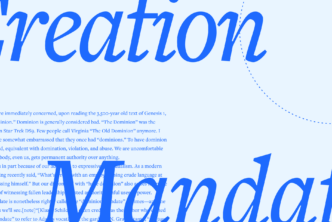The translators of the Revised Standard Version (1952; 2nd. ed. 1971) didn’t mince words when comparing their work to the King James Version. The KJV “has grave defects,” they said. Its underlying Greek texts were “marred by mistakes, containing the accumulated errors of fourteen centuries.”
The RSV translators, on the other hand, possessed “more ancient manuscripts of the New Testament.” They were “far better equipped to recover the original wording of the Greek text.”
Although I’ve written my own book taking an honest look at the King James Version, I don’t think these comments were fair. Or nice. Or helpful—even if they contain a kernel of truth.
Problems with the RSV preface
The RSV preface leaves the impression that there are lots and lots of important mistakes in the Greek text underlying the KJV New Testament. This just isn’t the case. Even after fourteen centuries of copying, the text of the latest biblical manuscripts is still extremely similar to that of the earliest copies we have. The differences are almost all excessively minor. Subsequent history shows that the RSV translators should have been more deferential to the Emperor of English Bibles. Their words (and, more importantly, their translation of Isaiah 7:14) only succeeded in making KJV readers mad.
Words like these just were not calculated to win people over:
The King James Version has grave defects. By the middle of the nineteenth century, the development of Biblical studies and the discovery of many manuscripts more ancient than those upon which the King James Version was based, made it manifest that these defects are so many and so serious as to call for revision of the English translation.
Every Bible translation is the result of hundreds of thousands of individual translation decisions, both about Greek and Hebrew and about the “target language,” in this case, English. For a translation to have “grave defects,” a huge number of those decisions, important ones in significant passages, would have to be shown to be in error. That has not been done. The widespread acceptance of the KJV over 400 years does not prove that the KJV was well done, but the number of gifted people who have praised it over that time rather does. I don’t think the KJV had “grave defects” when it was translated in 1611. The RSV overshot its mark here.
What the RSV preface gets right
But the RSV gets one big thing right when discussing the KJV: they carefully distinguish between two different types of changes that have occurred in English since 1611.
Dead words
First, the RSV recognizes what I call in Authorized: The Use and Misuse of the King James Bible “dead words.”
A major reason for revision of the King James Version, which is valid for both the Old Testament and the New Testament, is the change since 1611 in English usage. Many forms of expression have become archaic, while still generally intelligible—the use of thou, thee, thy, thine and the verb endings -est and -edst, the verb endings -eth and -th, it came to pass that, whosoever, whatsoever, insomuch that, because that, for that, unto, howbeit, peradventure, holden, aforetime, must needs, would fain, behooved, to you-ward, etc. Other words are obsolete and no longer understood by the common reader.
I don’t know anyone who doesn’t recognize this phenomenon. Unfamiliar words, words we no longer use, jump off the page to any modern reader.
You can discern the meaning of many archaic turns of phrase through experience with the KJV. But there are many words, like besom, chambering, and emerod, that can’t be learned by practice; they remain completely foreign to modern English ears. Context won’t help. You have to use a dictionary.
Yet even if you reach for Merriam-Webster (in my experience, many don’t bother), you’ll regularly come up short. Archaic words don’t always appear in contemporary dictionaries; they can be looked up reliably in only one resource: the Oxford English Dictionary. It’s a highly technical and exhaustive tome that takes a lot of hard work to understand and use wisely. Most of us don’t have the time or interest to learn, so the dead words in the KJV remain dead.
False friends
Second, the RSV translators noticed what I call in Authorized “false friends.” These words essentially can’t be looked up: unless you’re a specialist or an extreme nerd (like me), you won’t even notice that you’re misunderstanding them.
The RSV translators noticed; they were specialists (and probably extreme nerds). This is what they said of the KJV:
The greatest problem … is presented by the English words which are still in constant use but now convey a different meaning from that which they had in 1611 and in the King James Version.
This is what I said in Authorized:
The biggest problem in understanding the KJV comes from “false friends,” words that are still in common use but have changed meaning in ways that modern readers are highly unlikely to recognize.
I wrote that passage before ever reading the RSV preface. Eerie, right?
The RSV preface continues with some examples of “false friends,” words that “were once accurate translations of the Hebrew and Greek Scriptures; but now, having changed in meaning, they have become misleading.”
The King James Version uses the word “let” in the sense of “hinder,” “prevent” to mean “precede,” “allow” in the sense of “approve,” “communicate” for “share,” “conversation” for “conduct,” “comprehend” for “overcome,” “ghost” for “spirit,” “wealth” for “well-being,” “allege” for “prove,” “demand” for “ask,” “take no thought” for “be not anxious,” etc.
These words, the RSV says, “no longer say what the King James translators meant them to say.” And the list could go on. It does in Authorized: The Use and Misuse of the King James Bible.
Conclusion
My new book is making a point that is as old as the RSV preface—but it still desperately needs to be made. KJV users (and I’m still one of them!) tend to think only of dead words while being unaware of “false friends.” They feel unintelligent for not knowing KJV words, or lazy for not looking them up. But I argue that no one alive except a few specialists (and extreme nerds) should be expected to keep track of the winding path of all our many English words. And people should not be required to use a dictionary to understand words in the Bible for which there are common equivalents.
Some of the RSV’s criticisms of the KJV were unnecessarily unsettling for non-specialists—the intended market of the RSV—to hear. You mean the Bible I’ve read my whole life has “grave defects”?! The RSV preface could have gone the gentler route, safeguarding the trust of Bible readers without blaming anyone. They could simply have noted the reading difficulties that naturally occur as the centuries push a language this way and that. I wish they had.





